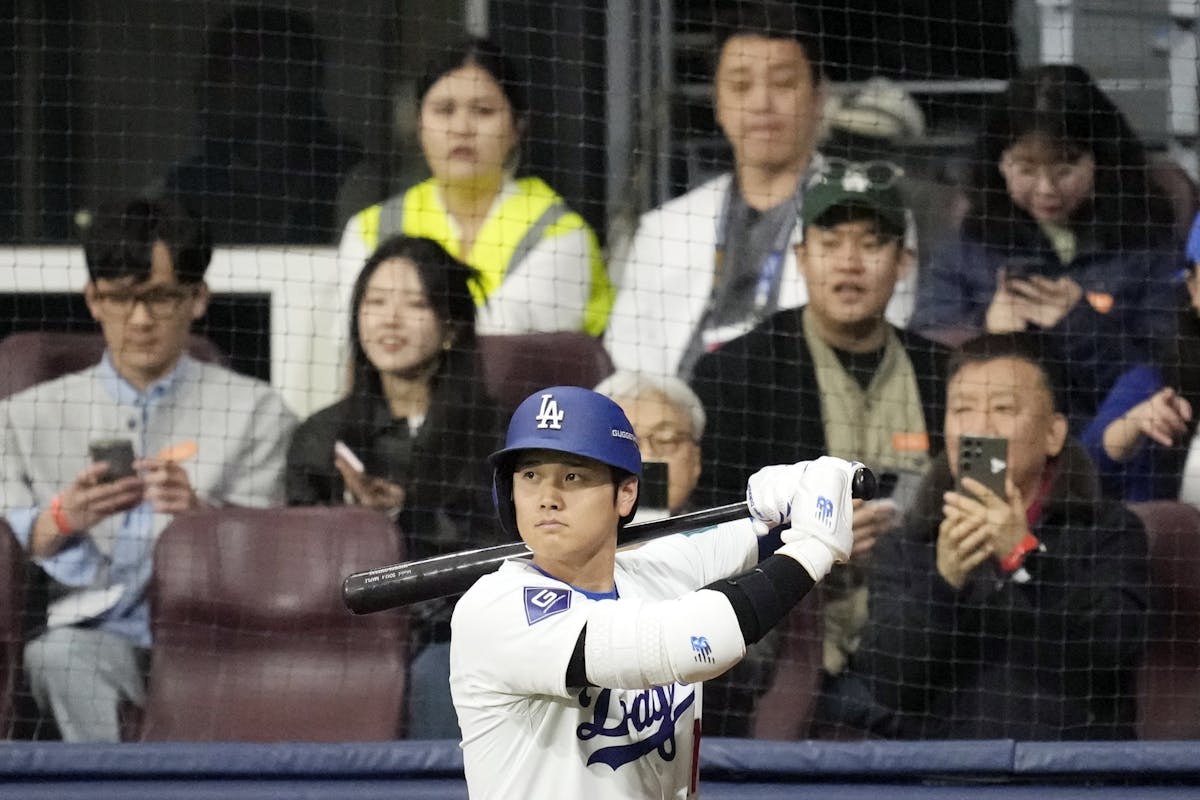Shohei Ohtani Is His Generation’s Babe Ruth: Could He Also Be Its Pete Rose?
A formal investigation has been launched into the $700 million man after his translator is fired under a cloud of suspicion.

The sports betting scandal surrounding Los Angeles Dodgers star Shohei Ohtani isn’t going away anytime soon, and nor is increasing concerns about the negative impact gambling can have on college and professional sports.
Mr. Ohtani, a two-time American League Most Valuable Player, just signed a $700 million contract to play for the Dodgers. The Japanese-born slugger is the face of baseball, a global superstar with a sterling reputation.
That image, though, was tarnished after the Dodgers fired Mr. Ohtani’s interpreter and long-time friend, Ippei Mizuhara, amidst a federal investigation into an alleged illegal bookmaker. The investigation disclosed four and a half million dollars in wire transfers from Mr. Ohtani’s bank account to a California-based betting organization.
The news broke while the Dodgers were opening their 2024 Major League Baseball season with two games against the San Diego Padres at Seoul. What began as a “Seoul Series” and international celebration ended in a cloud of controversy, with Mr. Ohtani refusing to speak to the media.
Mr. Mizuhara initially told ESPN that Mr. Ohtani paid the money to cover the interpreter’s gambling debts. A day later, Mr. Ohtani’s lawyers issued a statement saying the baseball player was a victim of “massive theft” without his knowledge. Mr. Mizuhara refused further comment and Mr. Ohtani’s lawyers said “We are turning the matter over to the authorities.”
While Mr. Ohtani has not been accused of placing bets, the evolving narrative casts a cloud of scrutiny over baseball’s biggest star. “You have to suspend belief to believe it all,” long-time baseball writer and current columnist for BallNine.com, Kevin Kernan, tells the Sun. “I think it’s a huge story. We’ll see what baseball does with this.”
ESPN reports that it reviewed bank information with Mr. Ohtani’s name on two $500,000 payments in September and October of last year. Mr. Mizuhara insisted he placed bets for himself on international soccer, the NBA, the NFL, and college football, but not on baseball. Mr. Mizuhara said the wagers did not involve Mr. Ohtani.
Major League Baseball released a statement on Friday announcing it began a formal investigation into the gambling allegations surrounding Mr. Mizuhara, meaning that the scandal could hang over Mr. Ohtani for much of this season.
Questions abound. How could Mr. Ohtani not know his interpreter and confidant since 2017 stole $4.5 million of his money to pay gambling debts? Was Mr. Ohtani an innocent victim? And why were those payments debited from his bank accounts?
The Internal Revenue Service also confirmed an AP story that Mr. Mizuhara and alleged bookmaker Mathew Boyer are under criminal investigation. “This is bad for Ohtani on so many levels,” Mr. Kernan tells the Sun. “You have to question everything now.”
Whether Mr. Ohtani faces a threat of suspension remains to be seen. Baseball traditionally takes a hard stand against gambling, evidenced by Commissioner Bart Giamatti issuing a lifetime ban to legend Pete Rose in 1989 for betting on his team. Mr. Giamatti died of a heart attack one month after banishing Mr. Rose, and the game’s most prolific hitter has never been eligible for the Hall of Fame.
Fast forward three decades and MLB has partnerships with online betting giants FanDuel, DraftKings, and BetMGM. Sports betting is legal in 38 states, Puerto Rico, and the District of Columbia, but not California, where illegal bookmakers can accept bets on credit.
The popularity of sports betting is impacting several sports. The coach of the Cleveland Cavaliers, J.B. Bickerstaff, said recently that sports betting has “crossed the line,” with gamblers accessing his home telephone number and sending him “crazy messages about where I live, and my kids and that stuff.”
Mr. Bickerstaff says that sports betting, “Brings added pressure, a distraction to the game that can be difficult for players, coaches, referees, and everybody that’s involved in it.” He adds that “I do think we’re walking a very fine line, and we have to be extremely careful in protecting everybody who’s involved.”
Just less than $3 billion is expected to be wagered on this year’s men’s and women’s NCAA Tournaments, according to the American Gaming Association. The AGA said that figure is twice the amount bet on the Super Bowl.
College students are especially active in sports betting. A survey by the NCAA showed that nearly 60 percent of Americans between ages 18 and 22 have bet on sports and four percent do it daily.
A professor of Sports and Society at The University of Southern Mississippi, Chris Croft, isn’t surprised by those numbers. “All the social media sites target college students, especially males,” he tells the Sun.
Mr. Croft adds that “ college students have access to information, especially about their teams. They have access to information through classes or fraternities, sororities, clubs, and parties. They may have a class with the point guard who is hurt. They know the inside scoop before maybe it’s published.”
Correction: A little less than $3 billion is expected to be wagered during March Madness. An earlier version misstated the amount.

